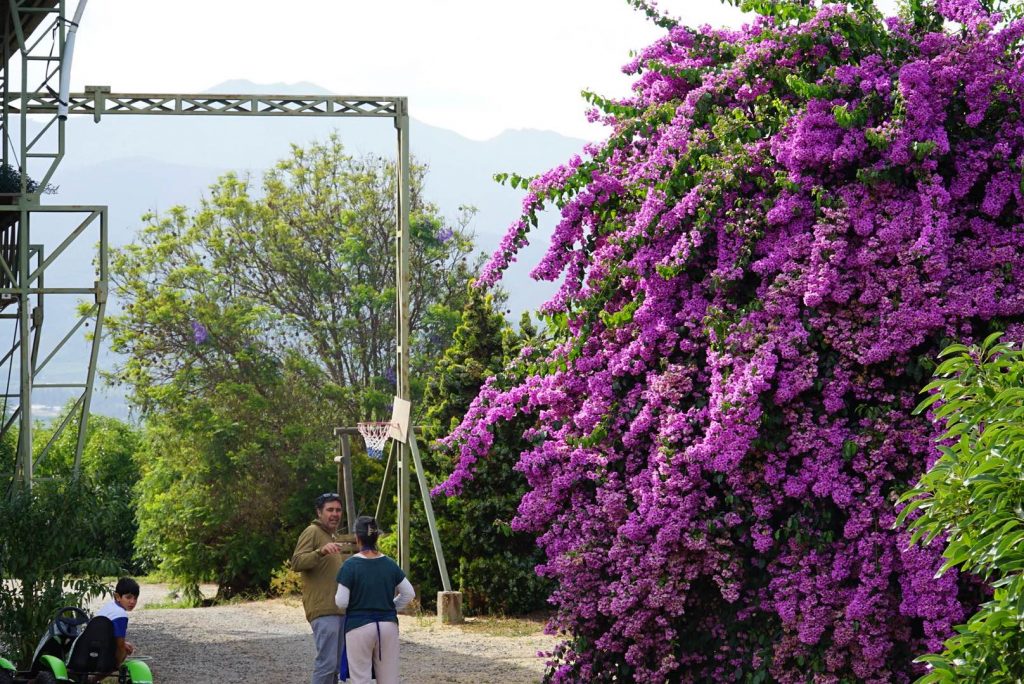Context
Agriculture in the Valparaiso region is characterized by the production of avocado, vegetables and vines. Agriculture is using of 80% the water available, avocado in particular are extremely demanding. The region is one of three regions in the country declared as an area of extreme water scarcity, and this situation is worsening with climate change.
Most of the avocado production is for export and requires high sanitary standards. Most production models are conventional, with significant use of chemical inputs. Today, more than 41% of the soils in the region are considered as poor. There is an urgent need to change agricultural practices to protect the region's natural resources.
Project leaders
Marcela and Juan Carlos Garcia have been settled for several decades in the “La Cruz” sector in the Valparaiso region. They were producing avocados using conventional production techniques, at that time. In the 2000s, Marcela and Juan Carlos’s children were in a Waldorf alternative school, and Marcela quickly became involved in the school’s agroecological vegetable garden. She takes care of the garden, educates the children… The couple decides to test these practices directly on their farm, first on a few rows of trees. In 2010, they decided to engage the entire farm in a biodynamic approach. It took 5 years to learn and find a balance to ensure sufficient production to cover the costs of production and earn wages. Now, 4 people work full time on the farm.
Project
The Crisol farm is spread over 9.5 ha around the family home, in the Valparaiso region, near Limache. 8 hectares are dedicated to the cultivation of avocado, and 1.5 hectares are dedicated to animals and the agroecological vegetable garden. The farm also has some fruit trees.
L’objectif de la ferme Crisol est de créer un écosystème équilibré afin de démontrer qu’il est possible de cultiver et produire suffisamment sans utiliser de produits chimiques.
The goal of Crisol Farm is to create a balanced ecosystem, showing that it is possible to cultivate and produce enough without using chemicals.
Several techniques are implemented:
- Permanent soil cover between avocado trees with compost and mulch. This technique keeps the soil alive and moist, particularly important with the lack of water. This is the basis of biodynamics.
"The visible part of the tree is an expression of what goes on in the soil" Marcela Garcia
- Biological pest control: fruit trees, rows of flowers strategically located to attract useful predators. Releases of useful predators are sometimes carried out if the trees are suffering from violent pest attacks.
- Washing and homeopathy medication against diseases: in case of fungal diseases, different techniques are used. Leaves can be washed with water, or with saponin, if water is not enough. The saponin is supplied by Marcela and Juan Carlos’ son, who grows quinoa (saponin is a “waste” of quinoa when it is washed). If the disease resists, a homeopathic mixture is made from the ashes from the combustion of the fungi, then applied to the leaves of the trees.
Using the cycles of the moon: watering, fertilizing and treating against the pest and diseases are done according to the moon cycles in order to improve its efficiency. It’s been shown that the trees absorb the water differently depending on the moon.
The Little Extra
Farm tours are also organized, Marcela and Juan Carlos receive curious people and children to introduce them to biodynamics.
“Today, among farmers, the sense of food is often lost. It must be in the center. I think this is fundamental for the future of agriculture. If we lose that and think that it is the money which is in the center, the whole system is doomed to collapse”
Marcela Garcia, co-founder of Granja Crisol
Last modification : 19 Apr 2020.
The Crisol Farm
The Crisol farm produces avocados in a balanced ecosystem and proves that it is possible to cultivate and produce enough without using chemicals and by reducing the amounts of water required.



